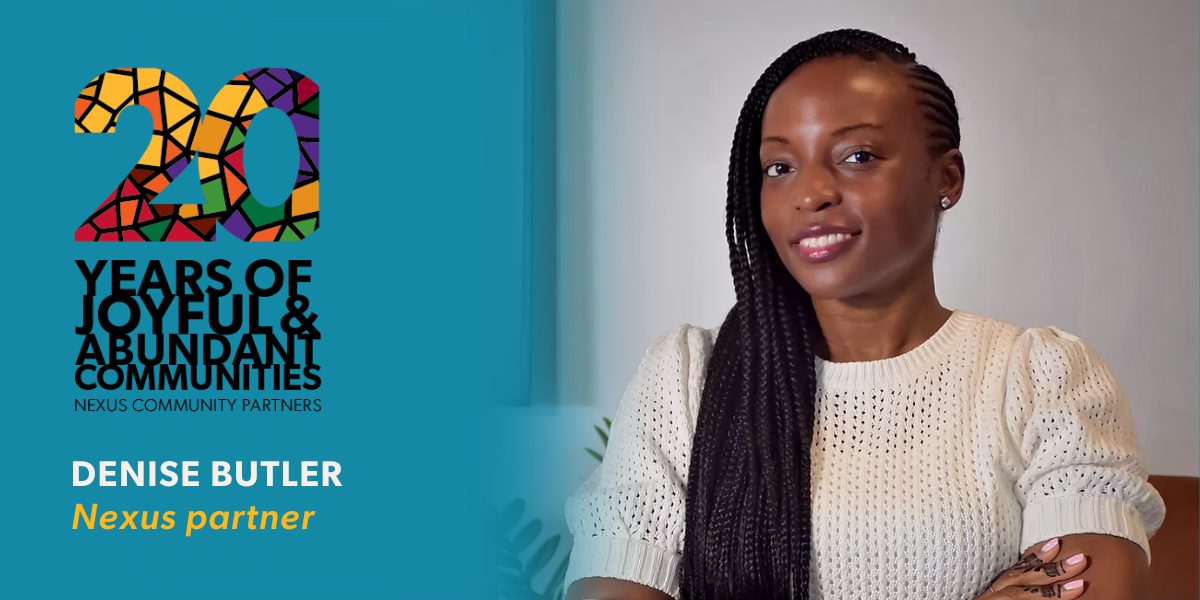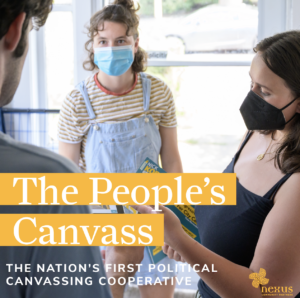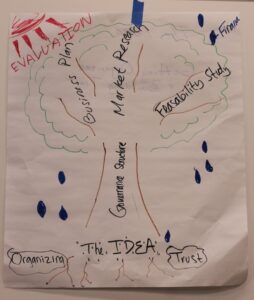
Through programs like our North Star Black Cooperative Fellowship and the Open Road Fund, Nexus Community Partners is reimagining Black wealth.
Building Black wealth means healing from over five centuries of labor and livelihood stolen from us on this stolen land. It’s owning what we produce and building and inventing for our families and community. It is a creative and sovereign practice of restoration that reaffirms the excellence that has always been in us.
Meet Amoké Kubat
Artist, writer, and Yoruba Priestess Amoké Awele Kubat is a Minneapolis “Northsider for life” who has been empowering mothers and families since 1987.
Amoké first heard about Nexus in 2011 through a friend who was being mentored by Nexus CEO Repa Mekha. Through her friend, she learned about Nexus values, strategies, and vision—all rooted in community. Seven years later, Amoké took a deep dive with us, joining our second North Star cohort.
“I was thrilled to be in the company of people who looked like me, who shared the diversity of the Black Experience as descendants of Africans. We were more than survivors. We held the roots and seeds of our Ancestors’ dreams and hopes. We were visionaries, warriors, educators, artists and more, who aspired to own businesses and cooperatives.”
Amoké’s co-op, YO MAMA’S HOUSE, INC., is an art and healing space for mothers of all ages. They empower mothers by disrupting the devaluation of women’s invisible labor and increasing recognition of the ART of Mothering. North Star helped Amoké build community with other Black cooperators while also accessing the technical assistance and funding opportunities she needed to further grow YO MAMA’S HOUSE.
In 2023, Amoké joined our Black Community Trust Fund advisory committee. As a respected Elder, she shared her wisdom in renaming the trust fund as the Open Road Fund—which comes from the English translation of Ejio Ogbe, meaning, “an open road leads to the fulfillment of destiny.”
“I firmly believe that people of African descent are NOT destined to fail. It is one’s birthright to live a long life, in good health, and live abundantly.”
Amoké’s greatest takeaway from her work with Nexus is that communities matter. “The workload is not heavy when we stand with likeminded people,” she says. “People have more power than they think they do—especially in solidarity.”
Will You Join Us?
In a time of ongoing and relentless attacks on Black life and well-being, initiatives run by and for Black folks to achieve Black liberation are essential.
Any gift you make between now and the end of the year will be doubled thanks to our friends at Voqal Partners.
- Monthly gifts of $20 are a way to honor our 20th anniversary throughout the year.
- $100 helps support costs for expanding our online work in Greater Minnesota.
- $500 covers a stipend that keeps our fellowships accessible to all.



 Did you hear that the People’s Canvass (formerly Knock Knock LLC) has become a worker-owned cooperative?
Did you hear that the People’s Canvass (formerly Knock Knock LLC) has become a worker-owned cooperative?
 Nexus Community Partners and
Nexus Community Partners and 

